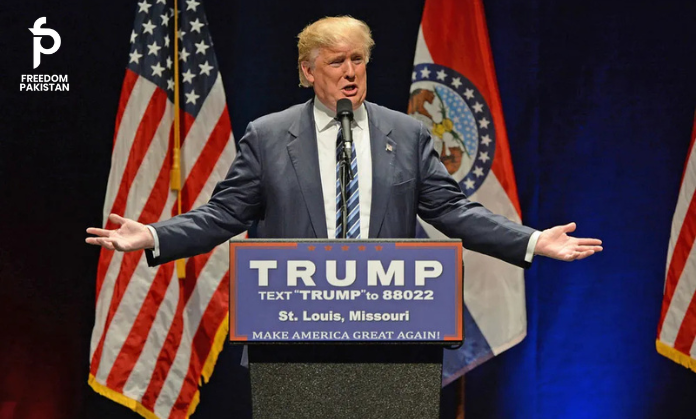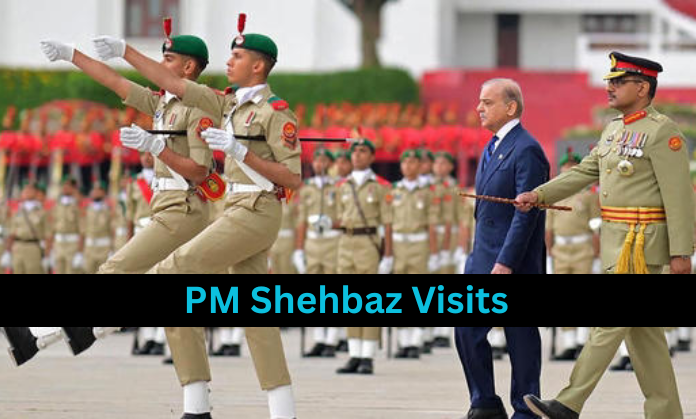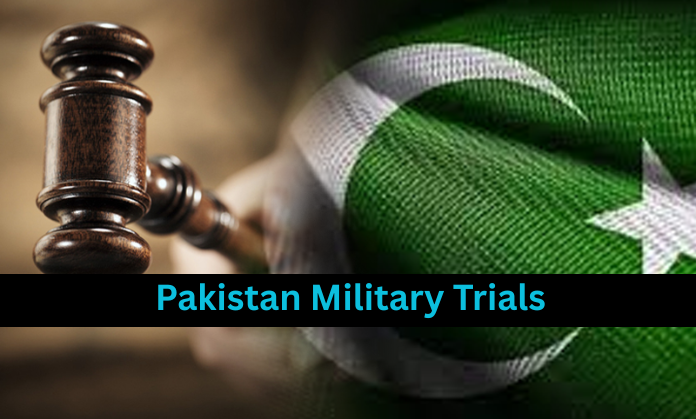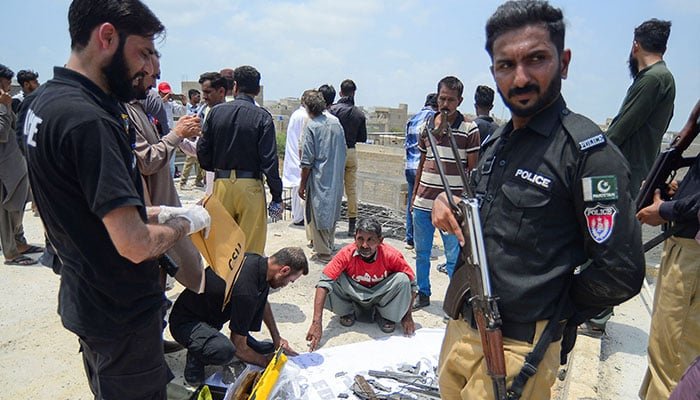Former U.S. President Donald Trump has once again sparked headlines by claiming that he deserves the Nobel Peace Prize—this time, for his alleged role in facilitating a ceasefire between Pakistan and India. Speaking at a recent rally, Trump said, “If I had a different name, and if I was from a different country, I’d already have the Nobel Peace Prize. I helped stop a war between two nuclear nations—India and Pakistan. Nobody talks about that.”
The comments have drawn mixed reactions, with some hailing his administration’s backchannel efforts and others accusing him of exaggerating his involvement in the complex South Asian conflict.
The Ceasefire Context
Tensions between India and Pakistan have been ongoing for decades, primarily centered around the disputed region of Jammu and Kashmir. Periodic border skirmishes along the Line of Control (LoC) have often resulted in casualties and displaced civilians on both sides.
In February 2021, both nations unexpectedly issued a joint statement reaffirming a 2003 ceasefire agreement, which led to a significant drop in border violence. While the announcement was seen as a positive step towards de-escalation, it came after years of diplomatic silence and heightened tensions, particularly after the Pulwama attack in 2019 and India’s abrogation of Article 370 in the same year.
Trump’s Claim and His Diplomatic Role
During his presidency, Trump publicly offered to mediate the Kashmir issue—most notably in 2019, when he claimed that Indian Prime Minister Narendra Modi had requested U.S. intervention. India promptly denied this, reaffirming its long-standing position that Kashmir is a bilateral matter.
Nevertheless, some analysts and former officials hinted at quiet diplomatic efforts led by the Trump administration to lower regional tensions, especially in the months leading up to the 2021 ceasefire. There were reports of backchannel talks facilitated by the United Arab Emirates (UAE), with possible support or encouragement from Washington.
Despite the lack of formal credit from India or Pakistan, Trump appears determined to position himself as a behind-the-scenes peacemaker.
Pakistan’s Official Nomination
On June 21, 2025, Pakistan formally announced it would nominate Donald Trump for the 2026 Nobel Peace Prize, citing his role in negotiating a ceasefire during the May 2025 India–Pakistan skirmish. Islamabad credited U.S. diplomatic intervention—courtesy of Trump—for ending the four-day cross-border violence.
What Actually Happened on the Ground
The immediate crisis erupted around April 22, 2025, following a terrorist attack near Pahalgam that killed 26 civilians. In retaliation, India launched Operation Sindoor, prompting Pakistan to respond with shelling and limited drone strikes.
-
May 10: President Trump announced a “FULL AND IMMEDIATE CEASEFIRE” via Truth Social, stating that “after a long night of talks mediated by the United States,” both sides had halted fire.
-
While both militaries reported minor violations—drone activity and small arms fire in early May—the truce largely held throughout the escalating and de-escalating phases.
Ceasefire History & Fragility
-
February 25, 2021: India and Pakistan recommitted to a 2003 ceasefire along the Kashmir Line of Control (LoC), marking the longest sustained lull in violence since 2016.
-
Ceasefire violations dropped dramatically: from 5,133 incidents in 2020 to just six in the early months after re-commitment.
-
Yet sporadic skirmishes persisted: e.g., exchanges in April 2025 near Srinagar and Pahalgam, as well as a 2023 clash that killed three civilians in Sattwal, demonstrating underlying tensions .
Reactions: Mixed Credibility
-
Pakistan: Applauded Trump’s intervention as a statesmanlike act and a signal of Washington’s regained influence in the region.
-
India: Both Prime Minister Modi and Foreign Secretary Vikram Misri rejected any third-party role; stating India–Pakistan military talks alone halted the violence.
-
Global Observers: A diversity of interpretations emerged—some saw U.S. pressure as instrumental, others termed Trump’s role as “quiet diplomacy” among several regional influencers (UAE, Saudi Arabia, Qatar) .
Trump’s Peace Prize Ambition
This isn’t Trump’s first Nobel-related claim. He previously touted his achievements in North Korea diplomacy, the Abraham Accords, and, now, Rwanda–DR Congo peace efforts. Despite multiple nominations, Trump has never been shortlisted. He often attributes this to bias, stating: “They won’t give me a Nobel Peace Prize because they only give it to liberals”.
Was It Enough for the Nobel?
-
For: Pakistan recognizes his decisive role, likely bolstering his case in Norway’s Nobel selection committee.
-
Against: India disputes any U.S. input, insisting the agreement was bilateral. Critics note that a Nobel typically honors sustained and verifiable peace efforts—not single-ceasefire flare-ups.
-
Ceasefire’s Longevity: Sustained peace, not just temporary lulls, is usually the yardstick for Nobel evaluation. True impact requires ongoing diplomatic frameworks, not overnight compromises.
Reactions from the Region
So far, neither New Delhi nor Islamabad has issued a formal response to Trump’s latest claim. Indian officials have typically downplayed foreign mediation in the past, while Pakistan has shown more openness to third-party involvement, especially from the U.S.
Public and expert reactions have ranged from skepticism to outright dismissal. “Trump is known for making bold, self-congratulatory statements. This is one of them,” said a South Asia policy analyst. Others argue that even if the U.S. played a quiet diplomatic role, peace efforts should be credited to the governments that signed and sustained the agreement.
The Nobel Peace Prize Debate
This is not the first time Trump has mentioned the Nobel Prize. During his presidency, he often pointed to his efforts in North Korea, the Abraham Accords, and other foreign policy moves as justification for receiving the prestigious award. While he was nominated for the Peace Prize in the past, he has never been a finalist.
Critics argue that the Nobel Peace Prize should be awarded based on clear, measurable, and sustained contributions to peace—not political rhetoric or symbolic gestures.
Final Thoughts
While Trump’s statement adds yet another layer to his controversial public persona, it also raises broader questions: What qualifies someone for the Nobel Peace Prize? Does indirect diplomacy deserve as much recognition as formal treaties and negotiations?
Regardless of whether Trump’s claims hold water, the India-Pakistan ceasefire remains a crucial milestone in South Asia’s volatile history. Sustaining it will require consistent dialogue, regional cooperation, and perhaps, quieter diplomacy than Trump is known for.
Read More
French President Personally Promotes Rafale




